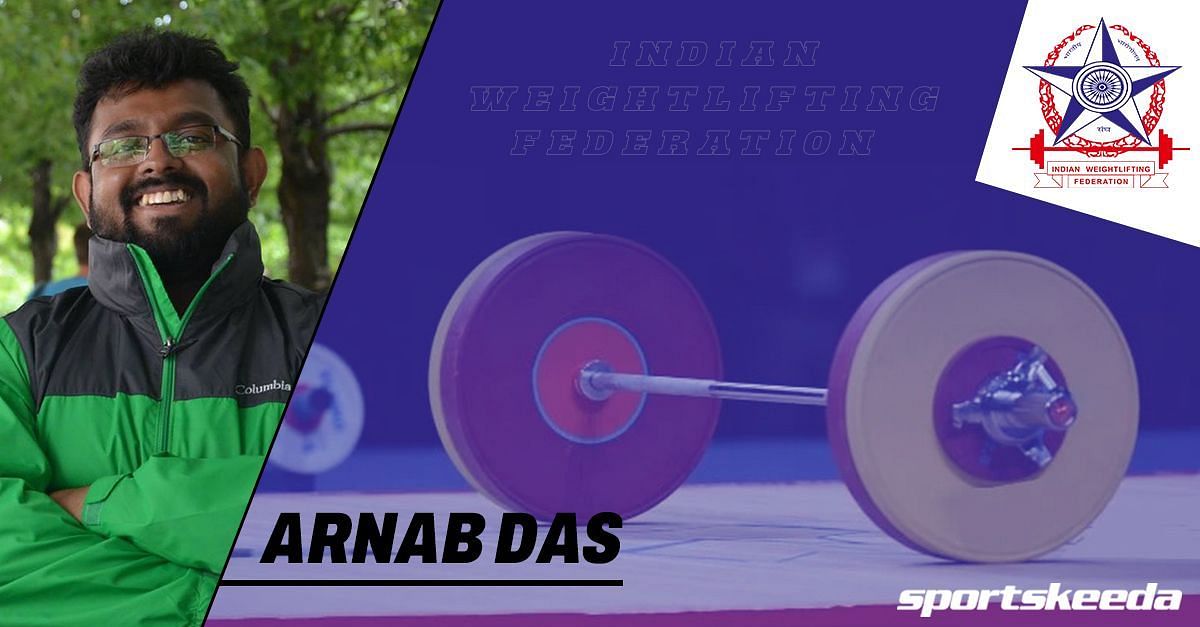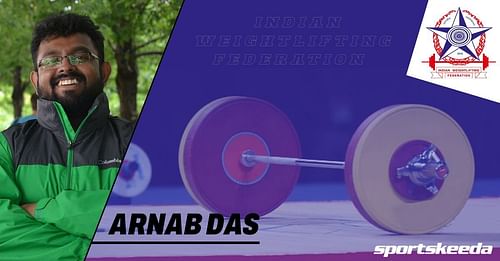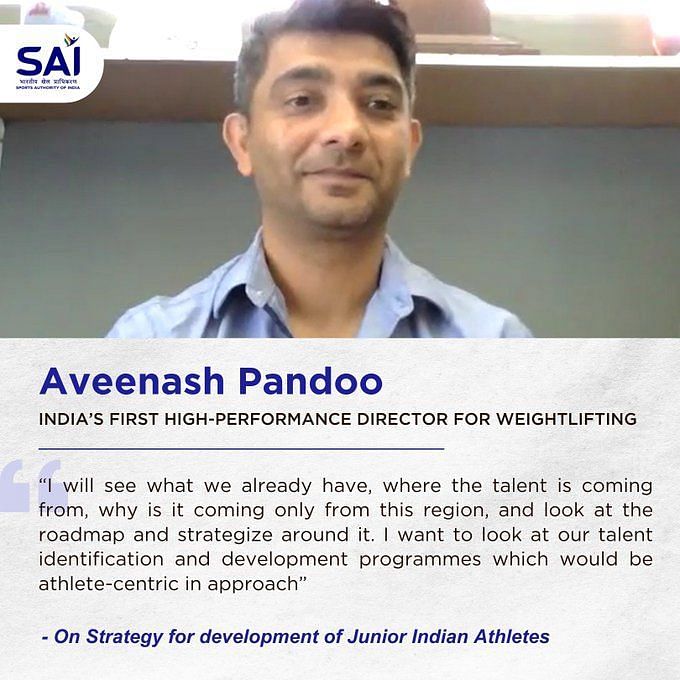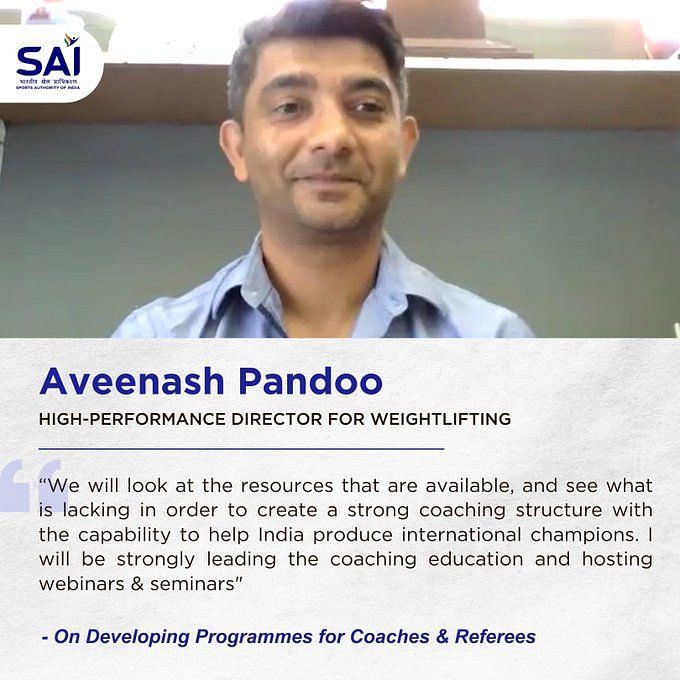
“We believe in a collaborative ecosystem for sports development”: Indian Weightlifting Federation (IWLF) CEO Arnab Das

The Indian Weightlifting Federation (IWLF) recently appointed Arnab Das as its CEO in an effort to take the sport of weightlifting to new heights, both in terms of performance and administration.
The sports administration structure in India follows a very similar model to our international counterparts, wherein national sports federations (NSFs) are predominantly responsible for the development of their respective sports while the ministry or a central governing authority supports these NSFs through resources, which are mostly financial in nature.
However, federations in India are still evolving as administrative bodies. In the recent past, there has been plenty of emphasis on the professionalization of NSFs, so much so that the Sports Authority of India (SAI) encouraged NSFs to hire CEOs whose salaries would be covered by SAI.
The move has led to several federations striving to appoint a CEO. Sportskeeda caught up with the newly-appointed CEO of India Weightlifting Federation (IWLF), Arnab Das, to learn more about his role, IWLF’s plans and the future of weightlifting in the country.
Speaking about his appointment as the first-ever CEO of IWLF, Arnab said:
“The decision to appoint a CEO was a strategic one to ensure the administration of the federation could be streamlined and headed by a professional who could focus on operational excellence of the organization. And the timing was also critical due to the support provided by the Ministry and SAI – it shows we are aligned towards a common vision and we believe in a collaborative ecosystem for sports development.”
Short, medium and long-term targets for weightlifting in India
2022 is a big year for international sports, with the Asian Games and Commonwealth Games scheduled to take place this summer. Thus, it is only natural that the immediate focus for Arnab and IWLF is the preparedness of its athletes for these events. Arnab said:
“Our short-term goal is definitely to prepare the contingent for Asian and Commonwealth Games. The team shall be travelling to the U.S. and later to Birmingham to train for Asian Games and Commonwealth Games respectively. We are striving to ensure all their needs are met first and foremost as the expectation is to achieve multiple gold medals at the Commonwealth Games and [have] a strong showing at the Asian Games.”
The Commonwealth Games will be a crucial competition in gaging the progress of younger prospects like Jeremy Lalrinnunga and Achinta Sheuli.
Looking beyond the upcoming international events, IWLF has identified the development of technical competency as a key focus area. Elaborating on their approach for the future, Arnab said:
“We are awaiting the joining of our High-Performance Director (HPD), Aveenash Pandoo, who will come in to focus on two key areas – he will obviously train the junior athletes at National Centre of Excellence (NCOE), but more importantly, he will help revamp the curriculum for weightlifting at NSNIS, Patiala and also develop a certification programme for coaches for the federation. Going forward, our aim is to ensure only certified coaches are training athletes at the National Camps, as is the practice in major sporting nations.”
Aveenash Pandoo comes with more than two decades of coaching experience and has contributed to the development of an international level curriculum for weightlifting coaching. The development of a qualified coaching pool aligns with the long-term targets of the federation.
Arnab further added:
“Long-term, we are focused on two key areas – increasing the pool of grassroot athletes in the sport and to have a sustainable financial model in place with corporate involvement. The support of corporates going beyond funding of elite athletes to supporting large-scale on-ground projects through long-term agreements will be a game-changer for sports development in the country.”
Weightlifting, as a sport, has been dominated by rural participation. Recognizing this trend, the federation has plans in place to attract more talent from rural settings. Speaking about their plans to foster increased participation and training at the grassroots level, Arnab said:
“We are looking to develop modest infrastructure in strategic locations which improves access to training facilities for rural lifters – we will cover living, dietary and education expenses to encourage athletes from these areas to train at these facilities.”
Arnab also elaborated on their plans specific to women, given India’s international success in weightlifting has been carried on the shoulders of female athletes. Stressing the importance of development plans focused on female athletes, Arnab explained:
“It is imperative to accord special focus to women – not just in weightlifting but in many other sports. We are working closely with SAI and the Khelo India division to implement a competition structure specifically for female athletes and we are also striving to develop a pool of female coaches and technical officials – this will be key especially for encouraging more grassroots participation of women.”
Arnab hopes that the achievement of their long-term objectives will be crucial in improving their current international performances. While the immediate expectation is to grab another medal in Paris 2024, the long-term goal is to return from LA 2028 with multiple medals in weightlifting.
Importance of administrative competency at federations
In addition to the development aspect, Arnab also spoke about the administrative side of the sport and his experience of having worked with SAI and supporting federations. Arnab said:
“Something I realized through my work with SAI and now sitting on the other side of the table – SAI and the ministry can play a crucial supporting role in the development of a particular sport but large-scale development and impact can only be achieved through a well-run federation. The outreach potential of a federation is unparalleled, so it is very important for federations to first become well-oiled machines administratively.”
Arnab further added:
“Hiring of professionals who can administer and monitor is of paramount importance – like athletic performance, operational excellence is also achieved through effective collection, analysis and evaluation of data, and federations need people who can do that to improve upon processes.”
There are encouraging signs for the future as federations are recognizing the need for such measures. Also, the number of qualified professionals willing to join entities like SAI and federations to work in sports is also increasing. Speaking about the need for qualified professionals to work in sports administration, Arnab said:
“We had a lot of young professionals working in SAI, and slowly, the trend needs to percolate to federations as well. Although working for events is a glamorous job for people who love sports, the ability to make national impact, and the fulfilment one derives from it, is on offer in plenty at sports federations. I also hope sports education programmes focus more on development aspects of sports in their curriculum to create a pool of talent who can come in with ideas and drive growth.”
Albeit early in his stint as CEO, Arnab believes in the future potential of weightlifting and other Olympic sports in the country. One hopes that through the appointment of forward-thinking, capable professionals in leadership roles at federations, Indian sports will eventually emulate the success of its global counterparts.

